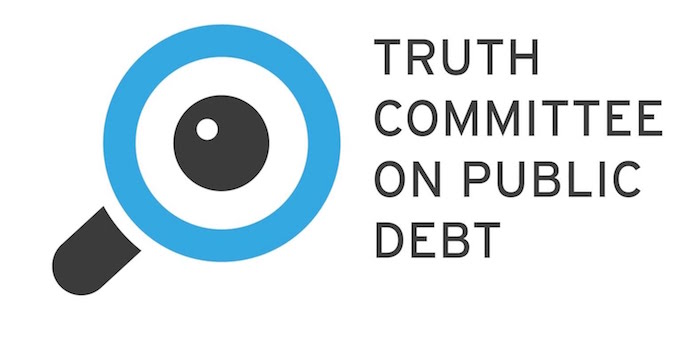Published by Financial Times,
February 13, 2017
Failure to tell truth to power lies beneath much of what is going wrong in Europe right now. It may not be the principal cause of the Greek debt crisis, which is now on its umpteenth iteration. But it is more than a mere contributing factor.
You notice it particularly at those moments when others speak the truth, as the staff of the International Monetary Fund have done recently. In its latest survey of the Greek economy it states that “public debt has reached 179 per cent [of gross domestic product] at end-2015, and is unsustainable”.
Europeans are not used to such bluntness. The Germans protested. The European Commission protested. So did the Greeks. They all want to keep up the fairy tale of Greek debt sustainability for a little while longer.
They were particularly shocked that the IMF exposed the disagreement when it wrote that “some directors had different views on the fiscal path and debt sustainability”. These were the Europeans, who are now in a minority in the fund.
Once the Trump administration sends its representatives to the IMF board, expect the climate to become even more hostile. My expectation is that the IMF will ultimately pull out of the Greek programme, leaving the Europeans free to mismanage the ongoing Greek crisis on their own.
How did it come to this? In July 2015, the EU and Greece agreed a third bailout. Alexis Tsipras, Greek prime minister, committed himself to running a primary surplus (before the payment of interest) of 3.5 per cent of economic output each year.
No country has ever managed to maintain such a commitment over an almost indefinite period. Greek debt sustainability was thus premised on an obviously unfulfillable assumption. Greece is not only far away from achieving a 3.5 per cent primary surplus. It will never do so.
Another untold truth is that Germany will never forgive Greek debt. This is because the German parliament will not accept it, and the number of MPs hostile to Greek debt relief will be even higher after the September election.
If the German government wanted to accept debt relief measures, it could probably assemble a parliamentary majority today. The “grand coalition” led by Chancellor Angela Merkel commands about 80 per cent of the seats in the Bundestag. But with the September elections, I would expect the Free Democrats, the liberal party, to re-enter the parliament after they failed to clear the hurdle last time. Their leader, Christian Lindner, said last week that the best way forward is for Greece to leave the euro-zone, and for Greek debt to be forgiven afterwards.
Alternative for Germany, the right-wing anti-European party, not only wants Greece out of the eurozone, but Germany as well. Together those two parties will probably account for some 20 to 25 per cent of MPs. If you add the large group of Eurosceptics from Ms Merkel’s Christian Democratic Union and its Bavarian sister party, the Christian Social Union, it is not hard to see why the window for debt relief will close permanently this autumn.
What is particularly galling about this story is the complicity of the Greeks themselves. There are no good and bad guys in this story. In the spring of 2015, in the months following Syriza’s election victory, Mr Tsipras’ government took the position that a fiscal surplus of 3.5 per cent is economically counterproductive and politically suicidal.
In the end he chose to cave in to European demands, and accepted the 3.5 per cent target. He then committed the catastrophic mistake of aligning himself with the EU against the IMF, the only institution that advocated debt relief. It was a political miscalculation. He thought the target was soft, like so many other European benchmarks. And he thought he could always compromise with the Europeans on structural reforms. He also miscalculated in assuming that the IMF would be complicit in such a deal.
A much overlooked part of the Greek bailout programme is that Germany made its participation conditional on IMF involvement. That gave the fund leverage. If the IMF now pulls out of Greece, one of two things will happen. Athens will either default on its debt this summer and be forced to quit the euro-zone, or Berlin will accept debt relief just a few months before the elections. Either way, this is a fight in which someone ends up on the floor.
The Greek crisis is only the most glaring example of failure to tell the truth. There are many others. Italy’s membership of a monetary union with Germany is also transparently unsustainable. Yet no Italian prime minister has ever mounted a credible challenge to the way the system is governed.
When the truth dies, we should not be surprised if alternative facts are put in its place











